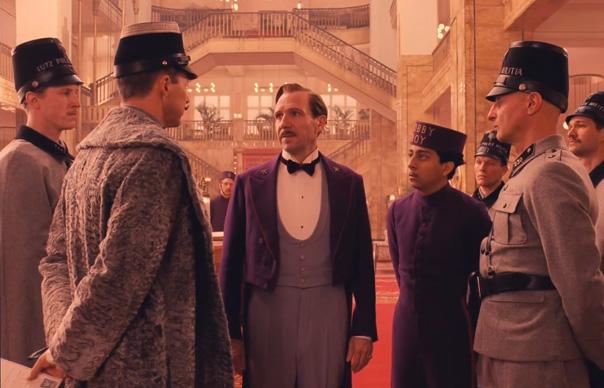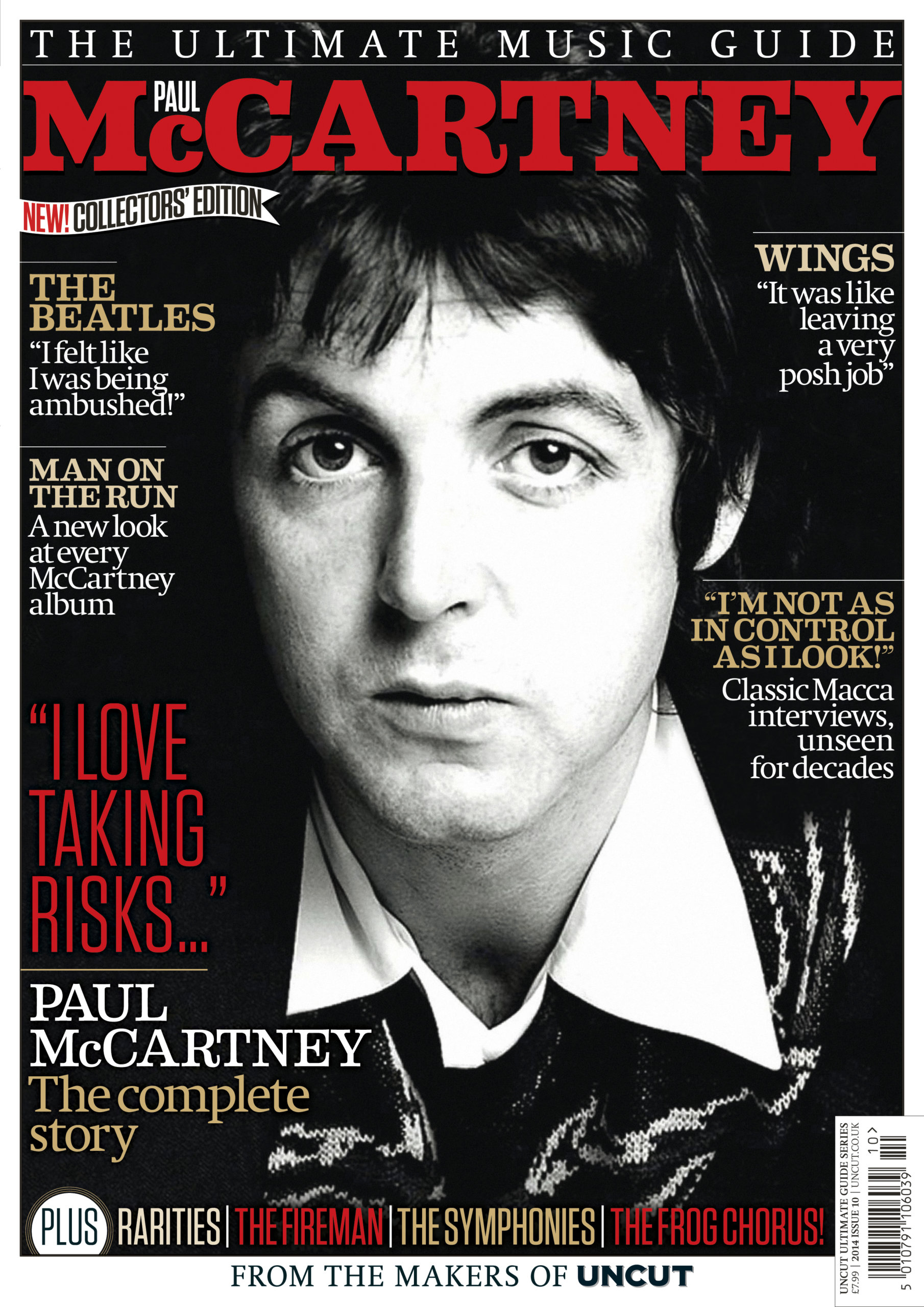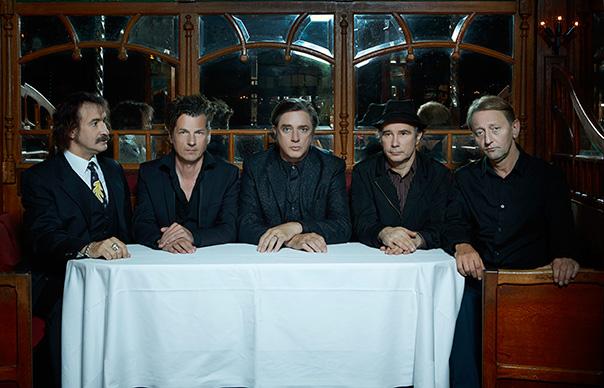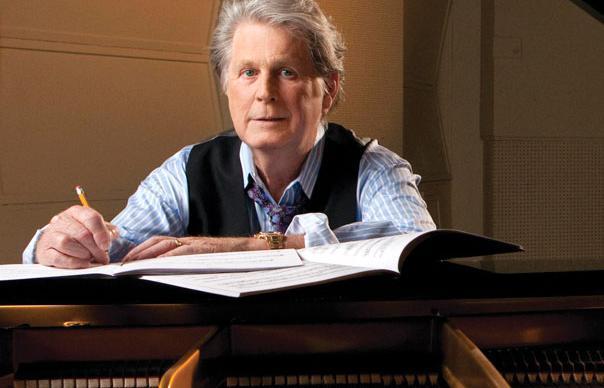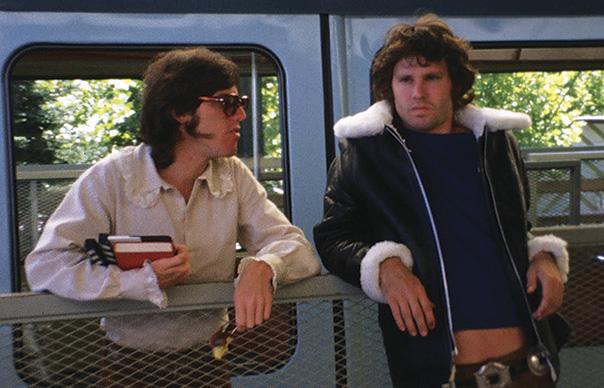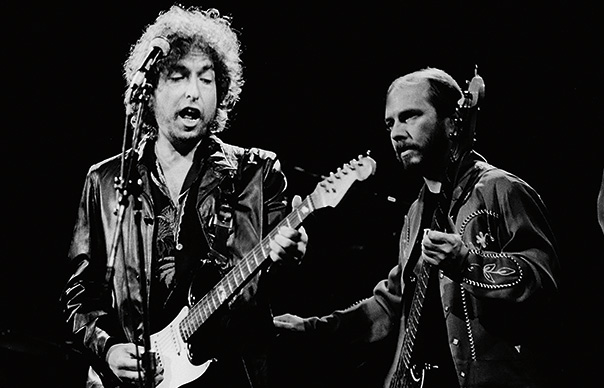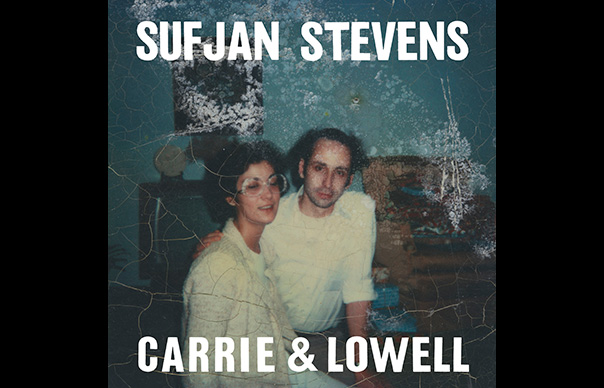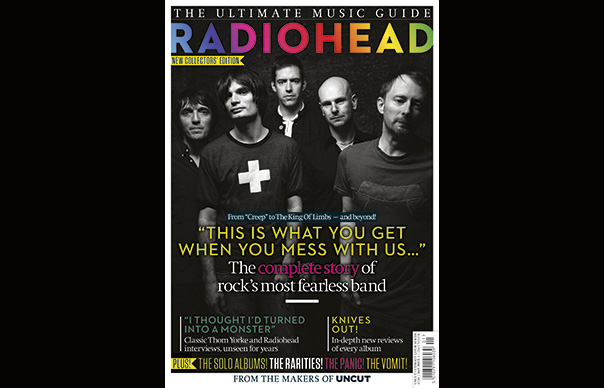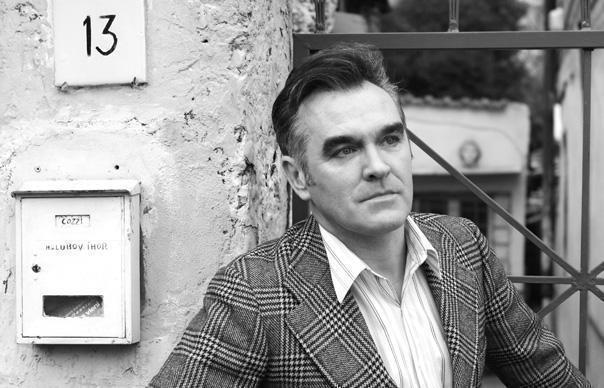Colin Meloy grew up with “Paul Westerberg in one ear and Morrissey in the other”. As hyper-literate frontman of The Decemberists, he has made rock currency out of landlocked sailors, Loyalist death squads and Japanese folk tales. In this piece from the Uncut archive (March 2011 issue, Take 166), we visit Meloy in Oregon to hear about the band’s improbably successful prog-folk concept album, and their straightahead REM homage co-starring Peter Buck… Words: Andrew Mueller
____________________
The speakers next to Colin Meloy’s computer monitor perch on blocks of wood. A handwritten inscription on the left reads “First Thought”, answered on the right by “Best Thought”. It’s not difficult to understand why Meloy instituted a reminder of this wisdom here, in the office/studio next to his house in the forest-covered hills north of Portland. His group, The Decemberists, named for a group of 19th-century Russian mutineers, pursue an unusually capricious muse. Lurking in The Decemberists’ discography are an EP based on a seventh-century Irish epic (2004’s “The Tain”), an album extrapolated from a Japanese folk tale and Shakespeare’s The Tempest (2006’s The Crane Wife) and an unabashed concept album (2009’s The Hazards Of Love). The Decemberists are probably the only band on Earth for whom making, as they just have, a country-rock record in a barn seems an act of wilful perversity.
“For sure,” nods Meloy, asked whether the relative simplicity of The Decemberists’ fine sixth album, The King Is Dead, is a reaction to the giddying flights that have preceded it. “Hazards Of Love especially was such a cerebral record, almost an academic thing where I was taking archetypes from old folk songs with the idea that if you fused them into this narrative it would make sense. It became a bit of a research project. I came out the other end thinking I’d rather do something a little less out of my brain.”
This, you sense quickly, would have been a struggle for Meloy. It’s not that he’s an unlikely rock star – he’s a charismatic performer, a confident singer – but it’s reasonable to suggest that he’d have been a likelier literary editor, or museum curator, or rock critic (he has written a book, about The Replacements’ album Let It Be, for Continuum’s 33 1/3 series). Meloy’s knowledge of music is vast, but his appreciation more analytical than visceral: he seems the sort who thinks things, rather than feels them.
____________________
Gillian Welch, who sings on The King Is Dead, says: “He’s like the really cool English professor at school. You know, he’s hip and probably throws great parties, but mostly he likes to sit around and talk about books.” The more Meloy talks, the more you understand why he moved up here from downtown Portland a couple of years ago. It’s remote, lofty, detached.
“I have,” he smiles, “quasi-agoraphobic tendencies.”
Meloy lives with his wife, the illustrator Carson Ellis, their four-year-old son, Henry – known as Hank. Meloy’s office/studio is in the downstairs part of the garage (Ellis works upstairs). It’s sparse, but welcoming. There are leather couches, a television, a piano, a drumkit, a framed poster of the recently voguish WWII admonishment “Keep Calm And Carry On”. Guitars adorn the walls, two acoustic, two electric – one of the latter, surprisingly, a Flying V, preferred weapon of the unreconstructed headbanger (“Because that’s what Bob Mould played in Hüsker Dü,” explains Meloy.) Squinting through the pines beyond the window, there’s a view of the Willamette River, which must slightly nourish Meloy’s recurrent fascination with the sea, evinced by the (Ellis-designed) tattoo of a clipper at full sail on his forearm, and by a model of something similar atop the piano.
Meloy grew up in Helena, Montana – about as landlocked as one can be on the North American continent.
“Yeah,” he says. “If you grew up in Montana, to go to the ocean was mindblowing. For anyone with a remotely imaginative predilection, that vast expanse of water really gets your head going. The Oregon coast in particular is pretty dramatic. When I moved to Portland, the ocean started cropping up in songs a lot.”
But in pre-internet times, becoming an alternative rock nerd can’t have been easy in Montana’s tiny capital.
“I had an uncle, 11 or 12 years my senior,” explains Meloy. “He went to school in Eugene, and he would send me mixtapes of music he was discovering. That was my lifeline. I remember him showing up at our house with Scritti Politti’s Cupid & Psyche ’85 and saying ‘This is like Wham!, but for smart people.’”
Meloy remembers one tape in particular, on which his uncle had compiled some local bands from Oregon, and in the space at the end included The Replacements’ “I Will Dare”, REM’s version of The Clique’s “Superman”, Hüsker Dü’s “Hardly Getting Over It” and The Smiths’ “The Queen Is Dead”.
“Those four songs,” says Meloy, “were the beginning of everything, for me.”
Meloy cheerfully admits that the title of The King Is Dead is a hat-tip to The Smiths. Later, driving to the photoshoot, he tells a typically wry story about being hopelessly starstruck when introducing himself to Johnny Marr, in Portland’s IKEA outlet, of all places.
Meloy learnt guitar from a Helena stoner whose lessons consisted of telling him to play along to The Jesus & Mary Chain’s “Psychocandy”. He formed his first band, the alt.country Tarkio, at college in Missoula, Montana. Tellingly, they titled an EP “Sea Songs For Landlocked Sailors”.
“Even though I was a massive Anglophile since I was about 14, I was channelling a lot of Americana,” he recalls. “Uncle Tupelo, Wilco, Son Volt, Gillian Welch’s first record. I was writing a lot in that style, but when I moved out here, I completely reacted against it.”
And how. Since forming after Meloy relocated to Portland in 2000, The Decemberists negotiated a path of singular strangeness. Early outings Castaways & Cutouts (2002) and Her Majesty (2003) were feverish, hyperliterate folk that suggested the more pastoral moments of XTC or The Waterboys rewritten by David Foster Wallace. Their third album, Picaresque (2005), collected rollicking sea-shanties, sumptuous pop, what sounded like excerpts from between-the-wars operettas – and still sounded an exercise in sanity compared to The Crane Wife, a dazzlingly eccentric work that included two ten-minute-plus epics and a nursery rhyme about a 1970s Loyalist death squad. “The Shankhill Butchers” might, to some in Northern Ireland, have seemed a bit, well, soon.
“It did,” Meloy nods. “We got emails from relatives of their victims, asking how I’d have felt if it had been my family.”
Did he write back?
“No. But I felt like their response was perfectly reasonable. What was interesting to me about that story was the fairytaleness of it, the fact that parents would use the Shankhill Butchers as bogeymen. It’s why Holocaust fiction is interesting, because it’s one of those times when humanity dissolves, and you see where folk tales come from.”
Meloy’s pursuit of this curiosity reached a fabulously deranged apotheosis on The Hazards Of Love, a full-blown prog-folk opera, replete with enchanted forests, shape-shifting fauna, and a musical palette that strode purposefully into the realm of Jethro Tull. It sounds like a record made by people wearing capes. It’s marvellous. It is also, Meloy would surely acknowledge, preposterous.
“Oh, absolutely,” he beams. “I mean, how could you make a concept album after about 1981 otherwise? The stuff of ours that is considered proggy, I think are our funniest records. They are done with a bit of a sense of humour. Hazards Of Love was, in a way, kind of a fuck-you.”
What, as in “You thought The Crane Wife was pretentious? Try this”?
“Yeah,” he says. “There was sort of a self-destructive thing at work, that sense of, well, if I can truly do whatever I want to do, then this is what I want to do. And I want to make something which will be potentially offensive to people, and confounding to the label, and certainly to my bandmates. I think it came out of a darker time. I was quite cynical about things, having just put out our first major-label record [The Decemberists signed to Capitol before The Crane Wife], even though our label had been nothing but sweet to us. I think there was a part of me that wanted to sink the ship.”
That’s a pretty quixotic act of vengeance.
“It is,” he laughs. “They’ll be sorry that they… gave me money, and a career. I think I misdirect anger and frustration, and I think that record is maybe one giant misdirection. It had a lot to do with discovering with that, okay, I’ve started living this lifelong dream that I could make a living making music. I also came to grips with the fact that it’s not always great. I hate being on the road – you get sick of your bandmates, sick of the people you work with, sick of yourself. And then you hate yourself for having wanted it, and for not wanting it.”
If Meloy wanted to condemn himself to terminal obscurity, he seemed to be going the right way about it. But The Decemberists have returned from their friends’ barn in Oregon’s Happy Valley with an album of catchy, radio-friendly orthodox country rock tunes, embellished by guests Welch, Laura Veirs and Peter Buck. Meloy asked Buck along upon noticing that some tracks he’d written for The King Is Dead were, to put it charitably, especially affectionate homages to REM.
“The hard part,” he says, lifting a guitar from the wall, “was keeping a straight face while sitting down with Peter, and saying right, well, this one goes…” He plays the riff from “Calamity Song”, which could be mistaken for the riff from REM’s “Talk About The Passion”.
“Might sound familiar to him, right?”
Buck confirms Meloy’s guilelessness about helping himself to the works of his heroes, even when they’re in the room: “Colin would say: ‘This one’s very REM, 1987,’ and I’d go: ‘Yeah, I can see that. How near or how far away do you need it to be?’”
The songs on The King Is Dead are playful and confessional, but one stands out for its transparency: “Rise To Me”, a gorgeous ballad of solidarity, addressed to his son.
“It is,” says Meloy, and pauses. “My son – and, you’re the first journalist I’ve talked to about this – is autistic. So that song is about mine and Carson’s challenges. Thankfully, Hank is high-functioning. He taught himself to read when he was three, and he can tell you the Greek and Roman pantheon of gods, but can’t use a door handle, and has trouble looking people in the eye – this would all be recognised by any parent with experience of autism.”
As would, presumably, the lines “Hey Henry, can you hear me?/Let me see those eyes/This distance between us/Can seem a mountain size”.
“Yeah. I don’t want to sensationalise it, but I would hate it if anyone thought that song was me singing: ‘Go get ’em, kid.’”
For all that, The King Is Dead sounds like an album that was written to be played live. Meloy sounds unenthused.
“I didn’t like touring from the very moment we climbed into a van,” he says.
Was it that weird combination of constant overstimulation and chronic boredom?
“Exactly that,” he nods. “It’ll melt your brain.”
But aren’t you on the cusp of the big-time?
“Maybe,” he allows. “But if you grow up loving Hüsker Dü, The Replacements, Robyn Hitchcock… I didn’t listen to stadium rock, so I never thought about playing arenas. The holy places for me were the 40 Watt in Athens, or 1st Avenue in Minneapolis, so to play those places quite quickly was weirdly anti-climactic.”
Could that have something to do with the college rock part of his roots, with its institutional disdain for success?
“Maybe,” he says. “It’s like growing up in a broken home with bad parents. I grew up with Paul Westerberg in one ear and Morrissey in the other. I think I might be a little broken. But there are other horizons I want to explore. I think we could stand to take a big chunk of time out.”
Meloy and his wife have finished work on an illustrated chidren’s novel called Wildwood, and have signed a three-book deal.
“It’s something that Carson and I have been talking about for years, since before The Decemberists,” he says. “We started writing one book, but it was completely unpublishable. I don’t think it was even remotely appropriate. The protagonist was a 15-year-old girl who gets pregnant and gives birth to a rabbit.”
None of that in this one, then.
“None of that. I think it’s still relatively edgy. I had to fight my editor on a lot of things!”
Meloy sounds noticeably more engaged by this than he does by anything his band are doing. Are The Decemberists done?
“No,” he says, uncertainly. “I don’t think I’ll ever be able to get away from it. That said, I feel like I’m constantly trying to destroy it. I increasingly enjoy isolation, and you couldn’t pick a less favourable environment than touring if you are that way. You know, we’re about to go and meet the band, and they’re the sweetest, kindest people. You’re gonna think ‘Man, this guy’s a dick.’”
____________________
After a photo session in an abandoned Masonic temple, The Decemberists repair to an oyster bar. Earlier, Meloy had described his role in The Decemberists as that of a “hopefully benign dictator” – an assessment confirmed by Tucker Martine, who has produced their last three albums:
“Colin definitely has clear ideas going in,” says Martine. “But if he hears something more interesting going on, he’s quick to recognise it.”
Certainly, John Moen (drums), Nate Query (bass), Jenny Conlee (keyboards, accordion) and Chris Funk (guitar) seem far from mere hod-carriers to Meloy’s sonic architect. They’re four lively but easily complementary personalities, with firm opinions about the artists their guest should be hearing and the whiskies he should be drinking – although Funk’s entries in my commandeered notebook (Eagle Rare 10, George T Stagg, Black Maple Hill Farms) could be either, or both.
All have other attachments in Portland’s fertile music scene. Moen plays in Perhapst and Boston Spaceships, the latter the post-Guided By Voices vehicle of Robert Pollard. Query, Conlee and Funk are three-fifths of gloomy bluegrass outfit Black Prairie. Right now, though, Funk and Conlee are due in the latter’s basement for a rehearsal of their Pogues tribute group, Kmria (“All I contributed was the name,” says Meloy. “It’s a acronym of that line from Ulysses, ‘Kiss My Royal Irish Arse’.”) I’m hospitably invited, then happily deafened. Aside from the two Decemberists, Kmria include local songwriter Casey Neill, Eels drummer Derek Brown, and REM/Young Fresh Fellows/Minus 5 guitarist Scott McCaughey. Though Meloy has returned to his retreat in the hills, something of what makes his band special is discernible. Like The Decemberists, Kmria are serious, but they’re not that serious. There’s joy here, as well, a love of music as generous as it is learned.
Earlier, I’d called Meloy on his repeated use of the phrase “the old main drag” in a new Decemberists song, “Down By The Water”. An odd choice of language for an American, surely a borrowing from The Pogues.
“Yes,” he’d said. “Well, there are main drags in America. There was one in Helena. But I think I was conflating that song with my memories of the one in Helena. Jenny also inadvertently steals a Pogues melody in that song. We’re a very referential, and reverential, band.”



